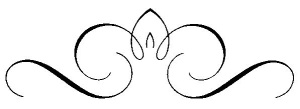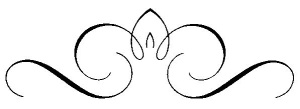December 2, 2013
Maria Callas (December 2, 1923 – September 16, 1977), was an American-born Greek soprano and one of the most renowned and influential opera singers of the 20th century.
Critics praised her bel canto technique, wide-ranging voice and dramatic gifts. Her repertoire ranged from classical opera seria to the bel canto operas of Donizetti, Bellini and Rossini; further, to the works of Verdi and Puccini; and, in her early career, to the music dramas of Wagner. Her musical and dramatic talents led to her being hailed as La Divina.
Born in New York City and raised by an overbearing mother, she received her musical education in Greece and established her career in Italy. Forced to deal with the exigencies of wartime poverty and with myopia that left her nearly blind onstage, she endured struggles and scandal over the course of her career.
She turned herself from a heavy woman into a svelte and glamorous one after a mid-career weight loss, which might have contributed to her vocal decline and the premature end of her career.
The press exulted in publicizing Callas’s allegedly temperamental behavior, her supposed rivalry with Renata Tebaldi and her love affair with Aristotle Onassis. Her dramatic life and personal tragedy have often overshadowed Callas the artist in the popular press.
However, her artistic achievements were such that Leonard Bernstein called her “the Bible of opera“; and her influence was so enduring that, in 2006, Opera News wrote of her: “Nearly thirty years after her death, she’s still the definition of the diva as artist—and still one of classical music’s best-selling vocalists.”
Family life, childhood and move to Greece

September 16 marks the anniversary of the silencing of the voice of the great Greek soprano, Maria Callas, who died of a heart attack, in Paris, robbing the world of one of its greatest talents ever at the age of only 53.
Her name was written in golden letters in the history of opera and she turned into a worldwide legend.
Her full name was Maria Anna Sofia Cecilia Kalogeropoulos. She was born on Dec. 2, 1923 at a hospital in Manhattan. Her childhood was rather difficult because of the tumultuous relationship of her parents, which ended when her mother Evangelia took Maria Callas and her older sister back to Greece shortly before the World War II.
The great soprano remembered with bitterness her childhood and blamed her mother, who made her work and sing from a very young age. “My sister was thin, beautiful and friendly and my mother always preferred her. I was the ugly duckling. Ugly, clumsy and unwanted. I will never forgive her for depriving me from my childhood,” she had said in an interview to the magazine Time in 1956.
In May 1953, she realized that she needed a slimmer silhouette to interpret the dramatic roles with greater success. She lost nearly 36 kilos within a year and changed her wardrobe. Her transformation wasn’t left unnoticed by the international press which gave her rave reviews for that as well as her vocal abilities and her stage performance.
In 1957, Callas met the shipowner Aristotle Onassis at a party given in her honor. Their relationship was stormy and powerful, as their characters were. Callas had already gained the nickname “tiger” because of a wild facial expression when she got angry in front of some photographers and she was characterized as an artist with an intense temperament.
Callas broke up with Meneghini in 1959 and she left her career aside in order to stay next to Onassis. For nine years, she waited for the shipowner from Smyrna to ask her hand in marriage.
In 1968, Onassis suddenly decided to marry Jackie Kennedy, the widow of the American President, John F. Kennedy. Her world collapsed and according to witnesses of her friendly environment, she fell into depression. Her last performance took place in December 1974 in Japan.
Source: http://greece.greekreporter.com/2013/09/16/maria-callas-the-legend-of-a-great-diva/
Some say I have a beautiful voice, some say I have not. It is a matter of opinion. All I can say, those who don’t like it shouldn’t come to hear me.
Television interview with Norman Ross, Chicago (17 November 1957)
I admire Tebaldi’s tone; it’s beautiful — also some beautiful phrasing. Sometimes, I actually wish I had her voice.
Discussing rival soprano Renata Tebaldi, in a television interview with Norman Ross, Chicago (17 November 1957)
Don’t talk to me about rules, dear. Wherever I stay I make the goddamn rules.
On her controversial personality and performance, quoted in Wild Women Talk Back: Audacious Advice for the Bedroom, Boardroom, and Beyond (2004) by Autumn Stephens.
What [Tulio Serafin] said that impressed me was: “When one wants to find a gesture, when you want to find how to act on stage, all you have to do is listen to the music. The composer has already seen to that.” If you take the trouble to really listen with your soul and with your ears — and I say soul and ears because the mind must work, but not too much also — you will find every gesture there. And it is all true, you know.
On advice from Tulio Serafin, in “Harewood Conversations – 1968”, an interview in Paris with Lord Harewood for the BBC (April 1968) on Maria Callas : The Callas Conversations (2004) EMI Classics DVD
Callas was a diva in the classic sense of the word as well as in the sassier modern definition –– she was a great operatic performer, and she was also glamorous and temperamental, bombastic and beautiful. She transformed her appearance dramatically mid-career, losing weight and becoming as visually striking as she was vocally gifted.
Scandal followed her in her professional life, as she feuded with La Scala opera house, fought a lawsuit from a former agent and gained a reputation as a tigress. Her personal life was no less fiery, with a high-profile affair with Aristotle Onassis that kept her in the gossip columns. But Callas didn’t need scandal to stay in the public’s mind. The power of her voice made her famous, and she would not have stayed in the spotlight without it.
See more at: http://www.legacy.com/news/legends-and-legacies/maria-callas-best-quotes/1716/#sthash.i1ufRTJb.dpuf
Maria Callas, “O mio babbino caro” (Puccini)
Uploaded on Jan 21, 2009
Maria Callas
Georges Prêtre, Orchestre National de France, 1965
—
O mio babbino caro
Mi piace è bello, bello
Vo’ andare in Porta Rossa
a comperar l’anello
Sì, sì, ci voglio andare
e se l’amassi indarno,
andrei sul Ponte Vecchio,
ma per buttarmi in Arno
Mi struggo e mi tormento
O Dio, vorrei morir!
Babbo, pietà, pietà!
Babbo, pietà di me!
We ALL are ONE!!
We ALL are united through MUSIC!!!









